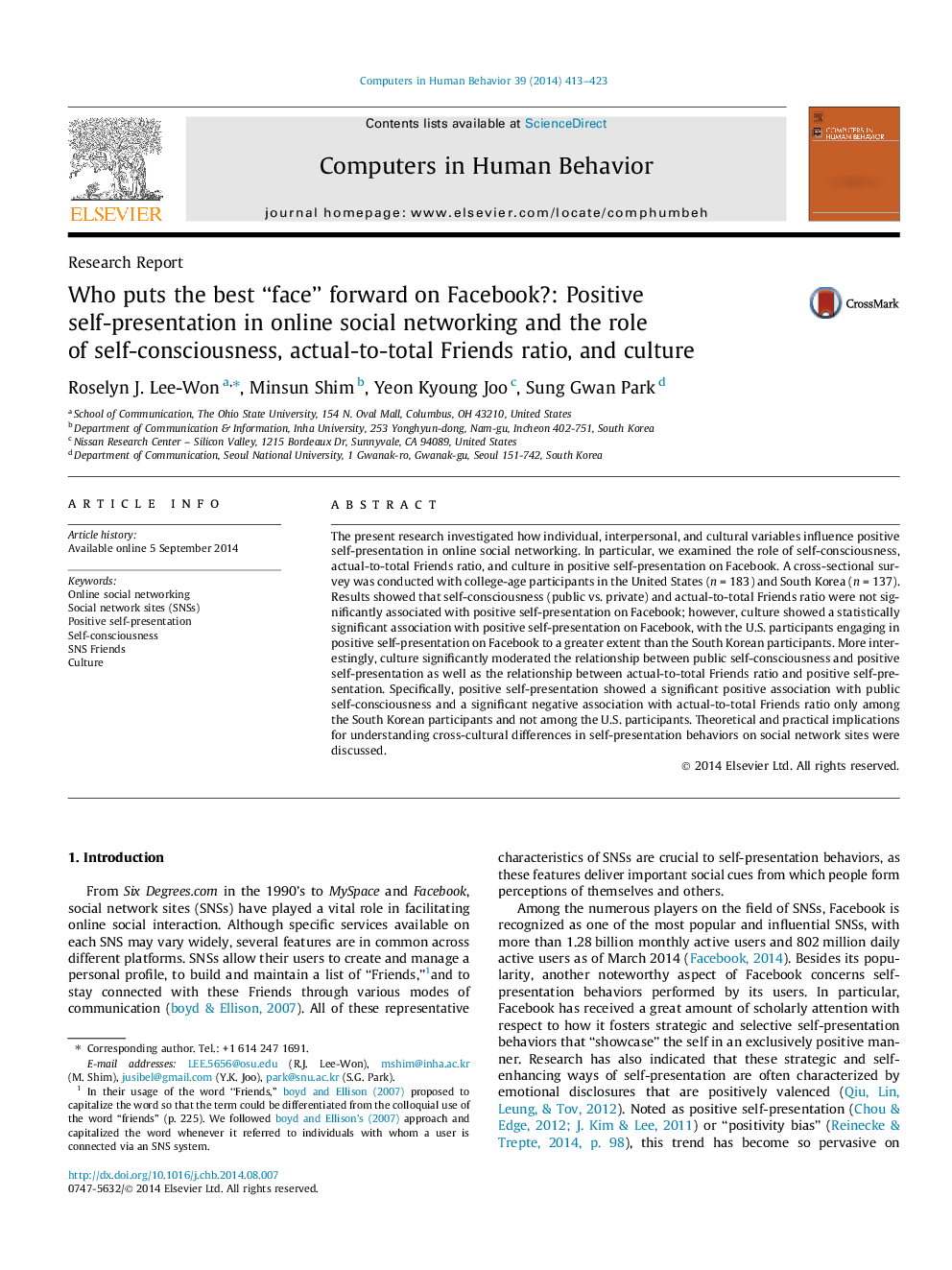| Article ID | Journal | Published Year | Pages | File Type |
|---|---|---|---|---|
| 6838913 | Computers in Human Behavior | 2014 | 11 Pages |
Abstract
The present research investigated how individual, interpersonal, and cultural variables influence positive self-presentation in online social networking. In particular, we examined the role of self-consciousness, actual-to-total Friends ratio, and culture in positive self-presentation on Facebook. A cross-sectional survey was conducted with college-age participants in the United States (n = 183) and South Korea (n = 137). Results showed that self-consciousness (public vs. private) and actual-to-total Friends ratio were not significantly associated with positive self-presentation on Facebook; however, culture showed a statistically significant association with positive self-presentation on Facebook, with the U.S. participants engaging in positive self-presentation on Facebook to a greater extent than the South Korean participants. More interestingly, culture significantly moderated the relationship between public self-consciousness and positive self-presentation as well as the relationship between actual-to-total Friends ratio and positive self-presentation. Specifically, positive self-presentation showed a significant positive association with public self-consciousness and a significant negative association with actual-to-total Friends ratio only among the South Korean participants and not among the U.S. participants. Theoretical and practical implications for understanding cross-cultural differences in self-presentation behaviors on social network sites were discussed.
Related Topics
Physical Sciences and Engineering
Computer Science
Computer Science Applications
Authors
Roselyn J. Lee-Won, Minsun Shim, Yeon Kyoung Joo, Sung Gwan Park,
